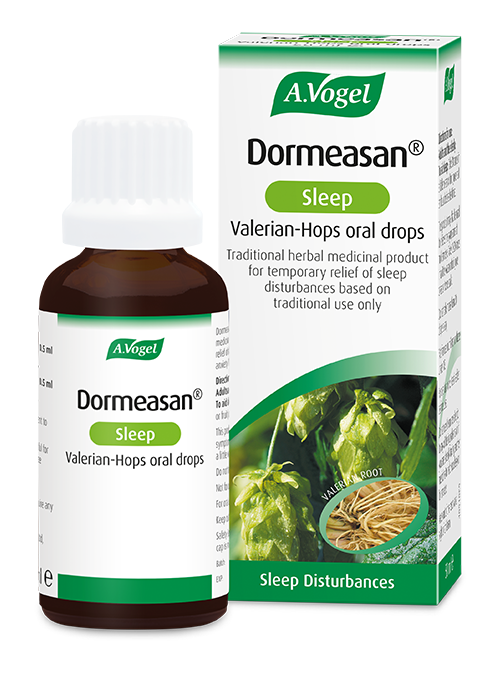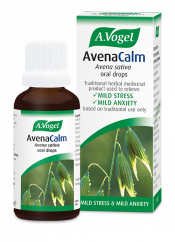Itchy skin and anxiety
To find out if there's a connection between anxiety and itchiness, this blog will cover:
- Does anxiety make my skin itch?
- How does anxiety cause itchiness?
- How to address itchy skin caused by anxiety.
Plus, check out my short video on the topic of irritated skin as well!
Does anxiety make my skin itch?
There are two ways anxiety can make your skin itch.
Skin conditions
If you suffer from a skin condition such as eczema, psoriasis, or dermatitis, anxiety can trigger a flare-up of symptoms. This can make your symptoms worse and leave you itching and scratching like there's no tomorrow.
Anxiety
Anxiety can also cause itchiness in a person without any underlying skin condition. While the origin of this is psychological, the symptoms are very real. You can be itching and scratching in the same way as those with an underlying skin issue. This symptom is most likely to occur in people who are experiencing very stressful situations, people who have an anxiety disorder, or those who are going through a major life event.
The way you perceive the skin sensation can be worse if you are experiencing anxiety too. Your methods of coping might not be very robust. So, you might feel more negative about the long-term implications and outcomes. You might find it more difficult to reach out to friends or family too. All these factors can create a vicious itch-anxiety cycle.
How does anxiety cause itchiness?
Often, stress is one of the foundations of anxiety. Stress causes many changes in the body, such as hormonal fluctuations and changes in the nervous system. These could lead to unpleasant sensations along one or more nerves. Although exactly how this happens isn't very clear, "itch-messengers' are thought to be involved in the process. Histamine and certain types of hormones signal the itch sensations anywhere on the skin.
How to address itchy skin caused by anxiety
While it can be tempting to fix your itchy skin by applying creams on top, I always like to address the root of an issue. So, if you are suffering from anxiety-induced itchy skin, addressing the anxiety and stress is a positive step towards long term relief. Here are some suggestions to get you started:
Sleep
Our sleep is affected when we are anxious or stressed. Often, deep sleep is skipped as we go to bed late, wake multiple times at night and rise feeling unrested. Sleep maintains your nervous system and balances stress hormones. So, establishing a good sleep routine is an important part of addressing stress and anxiety. Here are some tips if you are having trouble sleeping:
- Switch off blue light-emitting devices after 7 pm and dim the house lights.
- Keep your bedroom as a place for sleep. Try not to use it as an office, dining room and gym rolled into one.
- Practice a relaxation technique before bed to get you into rest mode.
- Here is a handy link to a video of 6 scientifically proven tricks for falling asleep.
Stress and anxiety reduction practices
It's impossible to guarantee a stress-free life, but it is possible to learn methods to cope with stress and thus reduce states of anxiety. One such tool is knowing the difference between perceived stress and actual stress. An example of actual stress is when you lose your car keys on the way to give a big presentation at work or college. You know you won't make it in time and are stressed about the implications. Perceived stress is a little different. It might be the feeling you get when you open your emails and feel dread at replying. There is nothing stressful about any of the emails, only your interpretation of the task at hand.
Being clear about what really is a threat and what isn't gives you a little more space around your thoughts and perceptions. Sometimes I can feel my head spinning and I know I am perceiving everything as a threat. When this happens, I choose one of my favourite stress-relieving practices. The activities listed below help regulate the part of our nervous system that helps us calm down:
- Breathing techniques
- Mindful movement – Yoga and tai-chi are popular movement practices you could try. Any gentle movement that brings your awareness into your body and regulates your breathing will be beneficial. Watch out for excessive strenuous exercise, especially late at night. This can have an energising effect, which is great in small doses at the right time but is not ideal after 6pm.
- Singing and humming – No videos or instructions needed for this one. Grab a power ballads album and start singing! Fake microphone, optional.
Diet
A processed Western diet has been found to exacerbate the stress response in animals and these effects may carry over into stressed-out humans as well.
Part of the problem may be that the Western diet is rich in high-glycaemic-index (GI) carbohydrates. Overdoing it on high GL foods like white bread, white rice, cakes and biscuits may lead to constantly elevated cortisol (the fight or flight hormone) and blood sugar imbalance, thus triggering a vicious cycle of chronic stress and unhealthy eating behaviours.
Switching from high GL foods to their lower GL versions is a really good idea for lots of reasons. Some simple swaps are switching from white bread, pasta and rice to wholemeal versions.
For more detailed information on diet and blood sugar, have a look at Emma's blog on the topic.
Here are some low GL recipes for you to try at home:
Another dietary factor that influences our stress levels is caffeine and stimulants. To cut caffeine's impact on your health, limit caffeinated drinks to certain hours. Have your first cup of coffee post-breakfast to ward off blood sugar destabilisation. Finish your last cup before midday so no caffeine is circulating in your body by bedtime.
Skin relief
Stress and anxiety don't usually disappear overnight, especially if it's a longstanding issue. So, while you begin adopting new relaxing habits, there are some simple ways to calm itchy, irritated skin:
- Take an oat bath. This not only relieves itchy, inflamed skin but relaxes an over-excited nervous system too. Add a cup full of oats to a clean pop sock and tie at the top. As you fill the bath with warm water, drop the oat sock inside and let the oats infuse the water. The water should turn a lovely milky, silky consistency. It is wonderfully soothing and nourishing for the skin and makes you feel a bit like Queen Cleopatra decadently bathing in milk.
- Stop wearing fabrics and materials that irritate your skin further. Synthetics and rough fabrics such as wool can be irritating to sensitive skin. Switch to natural, smooth fibres instead, such as cotton and bamboo.
- Stock up on calming lotions and creams. Make sure they keep the skin well-hydrated and are free from irritating ingredients. It can be a good time to do an overhaul of your body care products, to make sure they are not exacerbating your itchy skin. Our Neem products are a lovely option for sensitive skin sufferers. We have a shampoo, oil and cream to choose from.
My self-care tip: Itchy skin relief
Check out my self-care video below where I explain two ways to relieve itchy, inflamed skin:
References
https://www.ncbi.nlm.nih.gov/pmc/articles/PMC6189422/
https://pubmed.ncbi.nlm.nih.gov/16793938/
https://www.ncbi.nlm.nih.gov/pmc/articles/PMC3690364/
https://www.ncbi.nlm.nih.gov/pmc/articles/PMC4784068/
https://pubmed.ncbi.nlm.nih.gov/31491369/
https://pubmed.ncbi.nlm.nih.gov/30838645/









